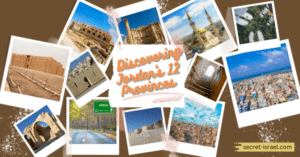Explore Jordan’s captivating blend of history, spirituality, and nature. With over 100,000 archaeological sites, it’s a treasure trove of ancient tales. From iconic Petra to sacred pilgrimage sites, delve into its holy significance. Taste the national dish, Mansaf, and soak in the Dead Sea’s healing waters. Experience Jordan’s hospitality, rich heritage, and breathtaking landscapes.
Welcome to Jordan – an ancient land with a modern heart, where Roman remnants whisper stories of a glorious past.
1. There Are Over 100,000 Archaeological and Tourist Sites in Jordan
Jordan, a treasure trove of history, is home to over 100,000 archaeological sites. These sites, steeped in antiquity, narrate a compelling story of the region’s past, spanning numerous civilizations and eras.
From the ruins of ancient Petra to the Roman city of Jerash and the desert castles scattered across the vast Eastern Desert, each site offers a unique glimpse into the country’s rich heritage. This abundance of landmarks makes Jordan a haven for history enthusiasts and tourists alike.
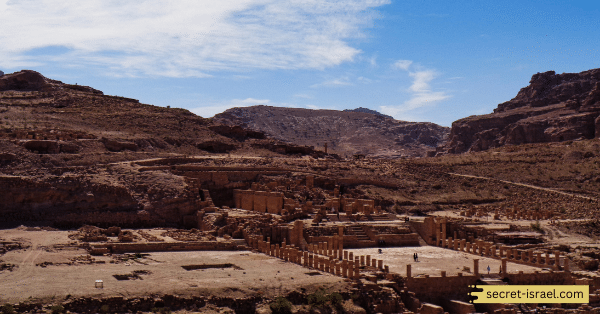
2. Jordan Is Part of the Holy Land
Jordan is part of the Holy Land, making it a sacred destination for many faiths. This is evidenced by its many pilgrimage sites along the Jordan River, such as Mt. Nebo and Bethany Beyond the Jordan.
The importance of this region means that there are countless churches, monasteries, and other religious monuments present throughout the country. Many of these places draw devoted crowds from around the world, making Jordan a spiritual haven.
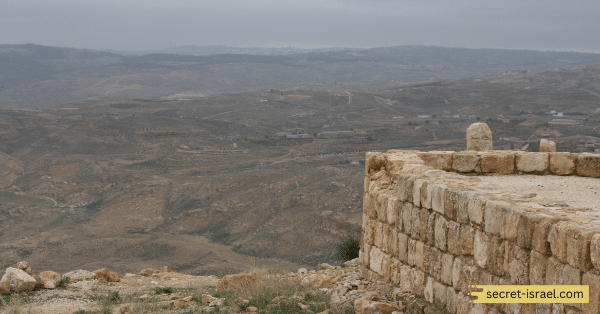
3. Jordan Has the World’s Oldest Dam
Jordan is home to the world’s oldest known dam, the Jawa Dam. Built around 3000 BC, the Jawa Dam is a testament to the early inhabitants’ innovative spirit and engineering skills. This dam, located in the northern part of the country, was used to collect and store rainwater for arid periods.
A crucial innovation in a region characterized by its dry climate. Its existence underlines the long history of water management in Jordan and the resilience of its people. The dam, although no longer in use, remains a remarkable landmark.
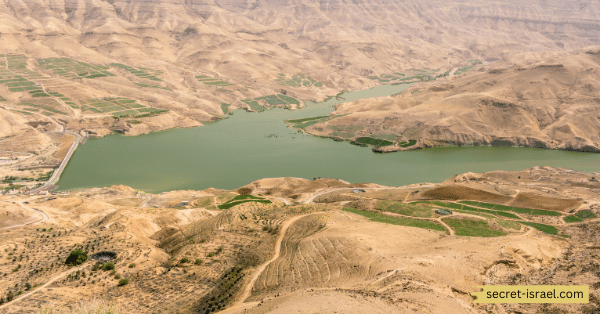
4. The Oldest Statues in the World Were Found in Jordan
Jordan’s archaeological richness extends to the Ain Ghazal area where the oldest statues in the world were discovered. These ancient figurines, estimated to be more than 9,000 years old, offer profound insights into the region’s Neolithic period.
Majestically crafted from plaster, these statues serve not only as remarkable examples of early human artistic expression but also as valuable evidence of the societal structures and belief systems of the time.
Today, these statues can be viewed at the Jordan Museum, bearing silent witness to the depth and complexity of human history that Jordan harbors.
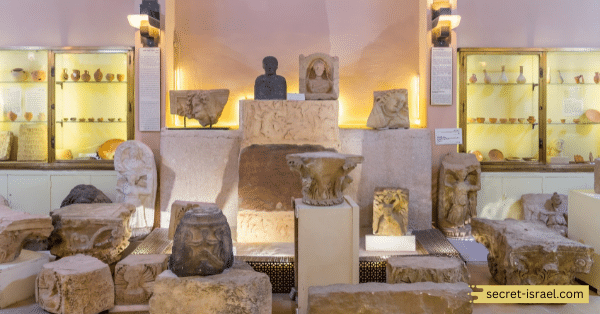
5. Jordan’s National Dish Is Mansaf
Mansaf, a traditional Jordanian dish made of spiced lamb and fermented yogurt, is the national dish of Jordan. Served with rice or bulgur alongside almonds and pine nuts, Mansaf has been part of Jordanian cuisine for hundreds of years. It is eaten to celebrate special occasions such as weddings and births.
Its origin story traces back to the Bedouin tribes of Jordan, who would often serve lamb with rice and yogurt at their gatherings. Although it has remained largely unchanged over time, Mansaf is an evergreen favorite in Jordanian households and continues to be a symbol of pride and tradition.

6. Jordan Is Home to the Dead Sea
The Dead Sea, the world’s deepest hypersaline lake, lies between Israel and Jordan. Its unique properties make it an ideal destination for health and beauty treatments, such as mineral-rich mud baths.
It is also home to several resorts, which offer rejuvenating spas and exceptional views of its surrounding landscape. As a result, the area around the Dead Sea has become a popular spot for tourists and locals alike.
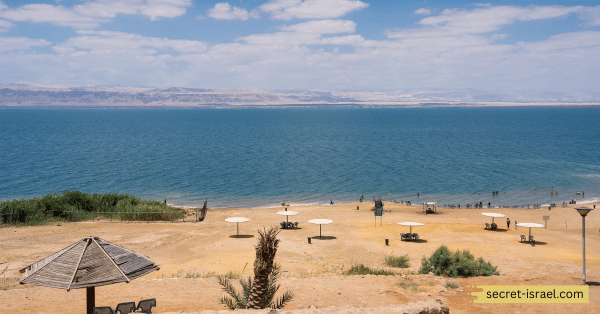
7. It Has Many Neighboring Countries
Jordan is bordered by Syria to the north and east, Iraq to the east, Saudi Arabia to the south, and Israel and Palestine to the west. It is also close to Egypt, making it an ideal point for connecting with other countries in the region.
This strategic location allows visitors a chance to explore Jordan’s vibrant culture while experiencing that of its neighbors.

8. Petra Was Once a Forgotten Site
Jordan’s most iconic site, Petra, was hidden from the outside world for centuries until its rediscovery in 1812. This ancient city boasts resilient architecture and breathtaking views, making it one of the most popular tourist attractions in Jordan.
Petra showcases a unique combination of Nabataean art and Roman engineering that captivates visitors from all over the world. It is no wonder that it was named a UNESCO World Heritage Site in 1985; Petra is truly an unmissable experience.
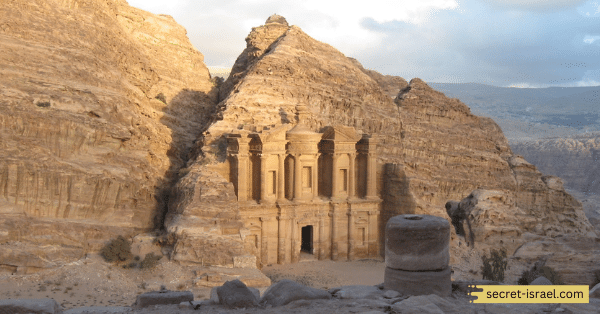
9. You Can Walk Across Jordan in 40 Days
Jordan is a small country, making it feasible to walk across the nation in 40 days. This legendary journey allows hikers to traverse lush valleys, climb rugged mountains, and explore hidden oases along the way. It’s a great opportunity for people looking for an off-the-beaten-path adventure, as well as those who wish to engage with local communities.
Moreover, this route also passes through some of Jordan’s most fascinating sites, giving travelers an opportunity to admire Jordan’s natural and cultural beauty.
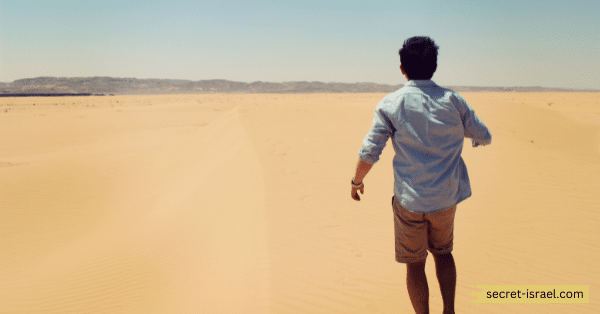
10. You Can Refuse a Meal Three Times Before You Accept
Jordanian hospitality dictates strict etiquette when it comes to dining. It is considered rude to refuse an offer of food more than three times; after that, you must accept the meal or risk offending your host.
This gesture is commonly known as “Al-Aseel” in Arabic and is practiced all over Jordan. A unique part of the country’s culture, Al-Aseel is an important reminder of Jordan’s strong sense of hospitality.

11. The Romans Once Ruled Jordan
Jordan has been ruled by many different civilizations throughout its history, with the Romans being among them. This is evident in many of Jordan’s archaeological sites that were built or modified during this period.
One example is Jerash, an ancient city constructed under Roman rule and now a popular tourist destination. The ruins are well-preserved and give us insight into the grandeur of Roman architecture and engineering.
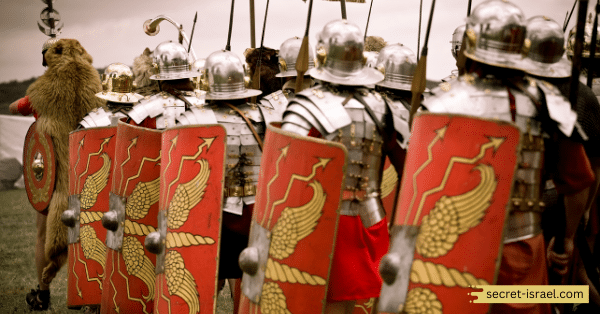
In conclusion
Jordan is a nation teeming with diverse historical, cultural, and natural wonders. With its numerous archaeological sites, integral role in religious history, distinctive cuisine, and stunning natural landscapes, Jordan offers a captivating experience for every traveler.
Its rich heritage, embodied in ancient ruins and traditions, combined with its warm hospitality, makes it an incredible destination worth exploring. Whether you are a history enthusiast, a culinary adventurer, or an avid hiker, Jordan has something for everyone.










